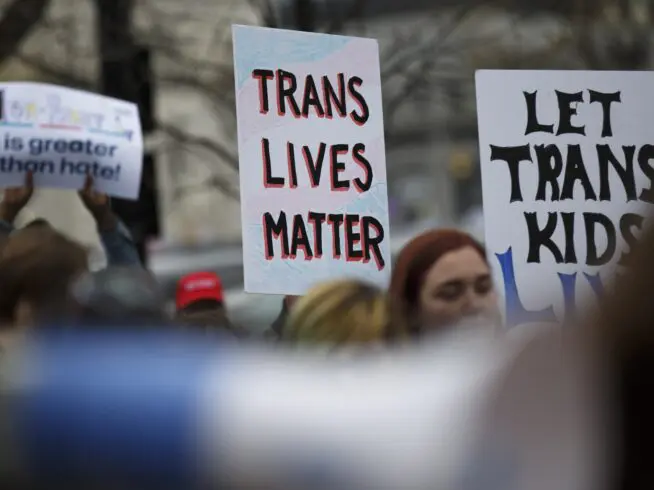Trump and GOP allies want to make his 2017 tax cuts for the rich permanent
The Biden administration wants to preserve tax cuts only for those making less than $400,000 annually.

In 2017, President Donald Trump and congressional Republicans enacted the Tax Cuts and Jobs Act, slashing taxes for the richest Americans while delivering minimal savings or even tax increases for everyone else. With the parts of the law affecting individual taxpayers set to expire in 2025, Trump and his allies are saying they will pass new legislation to make them permanent if Trump is elected president in 2024.
In keeping with his 2020 campaign pledge, President Joe Biden supports allowing the tax cuts for those making $400,000 or more annually to expire. Treasury Secretary Janet Yellen told reporters on Jan. 8 that extending the entire law without raising revenue elsewhere “would be a serious concern given the projections for the deficit,” but said Biden supports extending individual tax cuts for families making less than $400,000 a year, according to Bloomberg News.
The nonpartisan Congressional Budget Office estimated in May 2023 that making the expiring provisions permanent would add $3.5 trillion to the federal budget deficit through 2033.
Trump, who is seeking the 2024 Republican presidential nomination, has said his support for making his 2017 tax law permanent is a key difference between his policies and Biden’s. According to a Jan. 8 Bloomberg News report, he plans to use the issue to appeal to lower- and middle-income workers leading up to the election in November.
NH Journal reported that in a December 2023 campaign speech, Trump promised, “I will never let the Trump Tax Cuts be taken away from you—and with your vote in this election, we will cut your taxes even further,” echoing promises of a middle-class tax cut he made in 2018 and never kept.
In the U.S. House, 102 Republican lawmakers have signed on as supporters of the TCJA Permanency Act, which would extend the law’s individual provisions permanently.
Wisconsin Republican Reps. Scott Fitzgerald, Glenn Grothman, and Bryan Steil are all co-sponsors of the bill. Grothman and Republican Rep. Mike Gallagher voted for a similar 2018 bill, which passed in the House and died in the Senate.
In total, nonpartisan congressional scorekeepers estimated the 2017 tax law added between $1 trillion and $2 trillion to the federal budget deficit over 10 years. Gallagher and Grothman voted for it, as did Republican Sen. Ron Johnson.
At the time it passed, polls showed little public support for the Tax Cuts and Jobs Act. A few weeks prior to signing it into law, Trump, who ran in 2016 on a promise to both balance the budget and “fairly quickly” eliminate the entire national debt, called it “a big beautiful Christmas present” for the American people.




